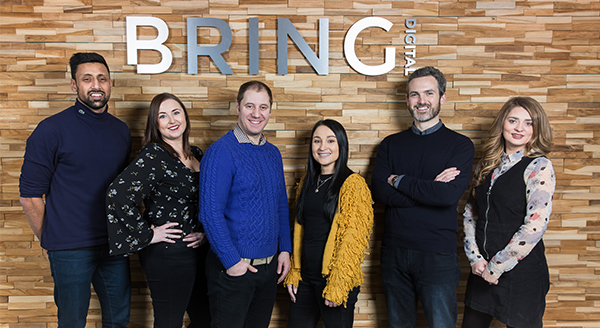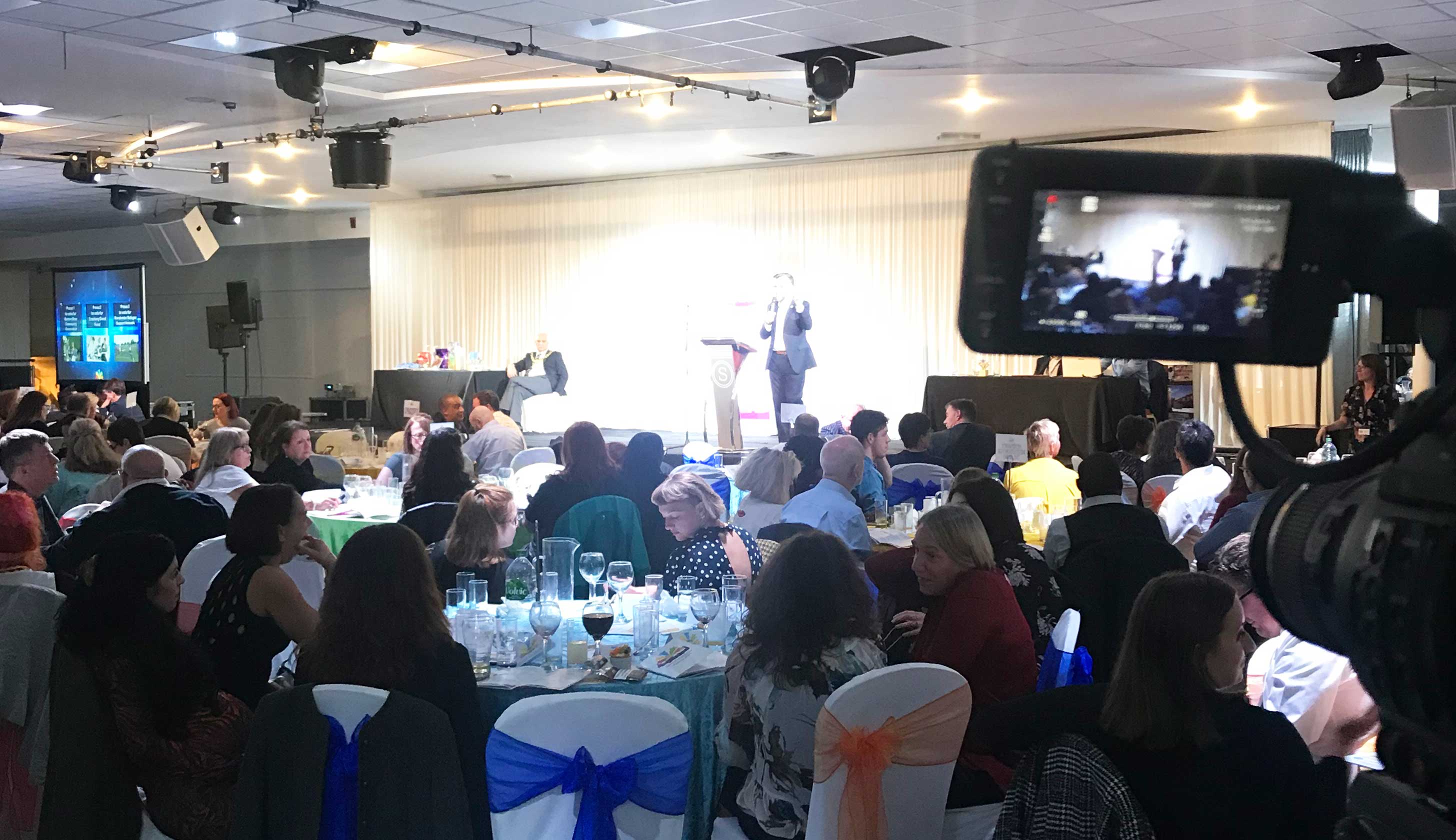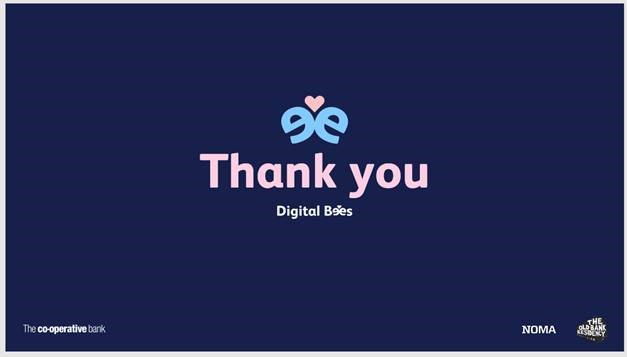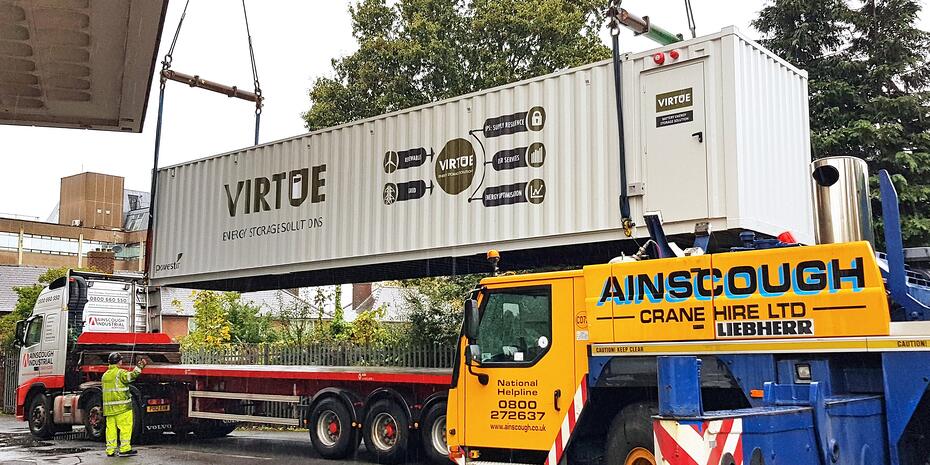
"What innovative tech trends is your business excited about for next year?"
Manchester Digital asked some of our members what tech trends they anticipate to be driving innovation within the digital sector in 2024.
Here's the second part of our feature, with contributions from CTI Digital, NetSPI, WilsonCooke, Onepoint Consulting, KPMG, EZHR, TLT and Fuzzy Labs.
In case you missed it, you can read Part One here.
CTI Digital
Based on our learnings from the past 12 months, there’s a few tech predictions we can comfortably make for next year. Primarily – and perhaps unsurprisingly – there’s going to be an even keener focus on first-party data, and it will be interesting to see how businesses navigate the ever-increasing need to handle customer data responsibly with the ongoing push for hyper-personalisation. We’re also likely to see an enhanced offering when it comes to audience segmentation – Google Analytics 4 offers a range of new features, predictive audiences being one of the most interesting and potentially powerful. Predictive audiences uses AI to suggest an audience based on predictive metrics – think ‘customer most likely to purchase in the next seven days’.
Alongside this insight and personalisation, we’re also going to see enhanced efforts to optimise the customer journey in the CX field, utilising tools like product pages. And data will continue to become more accessible to the layman, with data visualisation being a key trend for next year – a visual approach to data which connects sources and translates numbers into digestible graphics. AI and machine learning will continue to power this forwards, as it makes the task of data interpretation quicker, simpler and more impactful.
And furthermore on AI, when it comes to market trends driven by big tech, I think we’ll continue to see people lean into AI-generated content – Google will become increasingly open to this sort of content as it tries to push its own AI platform.
And of course, the need for sustainable tech will continue to grow exponentially – sustainability will need to be built into the core offering for tech businesses, challenging leaders to put their ESG mission front of mind when creating new websites or offering other digital services. Specifically, this might look like tech infrastructure which is powered by renewable energy, and carbon-neutral web hosting. At CTI, we’re proud to be leading from the front on this important mission, along with our tech partners – we are part of Umbraco’s Global Sustainability Council. The drive towards green tech is only going to get more urgent. - Steve Gale, CCO.
Click here to find out more about CTI Digital
NetSPI
As we enter 2024, the entire NetSPI team is looking forward to continuing to innovate and advance security practices through Artificial Intelligence (AI) and Machine Learning (ML). This past year was the proverbial tip of the iceberg with AI; moving forward, organizations have a real opportunity to level up their cybersecurity readiness using emerging technologies to evaluate the security of ML models. We’re expecting to see rapid innovation in all aspects of AI/ML usage – specifically at the foundational level, by enforcing scalability, identifying potential malicious interactions, and streamlining training processes.
Additionally, while notably an upcoming election year for many, political situations will likely lead to more nation-state attacks against critical and national infrastructure. A politically focused year, along with increasing usage of AI, will push businesses to lean towards establishing strong and efficient spending, along with more software-based solutions that empower an ‘always on’ mindset to combat today’s threat landscape. This shift is something we will be monitoring closely. - Nick Walker, Regional Director EMEA.
Click here to find out more about NetSPI
WilsonCooke
Green Tech in 2024: Eco-Friendly Web Hosting & Carbon-Smart Websites
Let's talk about your website's energy appetite. It's not just about cool graphics or engaging content, but also how it's powered. Enter green web hosting - web hosting with an eco-conscious twist. Increasingly, businesses are opting for hosting providers who use renewable energy sources and smarter, energy-efficient practices.
We're talking about servers that are energy-efficient and data centres that prioritise eco-friendliness over mere data storage. This shift isn't just good for the planet; it's also aligning with customer expectations. Brands demonstrating environmental responsibility are gaining more traction and respect in the market.
Now, onto carbon footprints. Your website has one, and understanding and managing it is crucial. It's all about acknowledging the environmental impact of your online presence and taking actions to counterbalance it.
Businesses are becoming savvy in tracking their website's carbon emissions and engaging in initiatives like renewable energy investments or tree-planting campaigns. This approach isn't just about reducing emissions; it's a strong message of commitment to environmental sustainability.
As we step into 2024, the focus is shifting towards more planet-friendly web solutions. From choosing hosting services powered by renewable energy to ensuring our digital footprints are environmentally responsible, businesses are embracing these green tech trends. It's a blend of doing good for the planet while maintaining a positive, forward-thinking brand image.
So, in 2024, it's all about making smart choices for your website – choices that contribute to a healthier planet and resonate with an increasingly eco-conscious customer base. At WilsonCooke, we're excited to start to build this more into our work. Let's make the web a greener place! - Sean Purdy, Brand Performance Manager.
Click here to find out more about WilsonCooke
Onepoint Consulting
The New World of LLM Driven Software
Large Language Models (LLMs) are revolutionising our digital experiences, exerting a substantial influence on various aspects of our lives. In this overview, we'll delve into what LLMs are, their training process, and explore emerging software applications associated with them.
LLMs are neural networks specifically trained on natural language, capable of processing language in diverse ways. While engaging in conversations is a prominent application, LLMs exhibit versatility in handling various tasks.
The training of LLMs unfolds in three key stages. Initially, the model acquires knowledge about a natural language, such as English, comprehending syntax, words, and sentence structures. Many LLMs utilise Wikipedia articles as foundational training data during this phase. Subsequently, LLMs undergo task-specific instruction training, where they process documents closely related to the desired task, such as question-and-answer datasets like the OpenOrca dataset. The final training stage, known as Reinforcement Learning from Human Feedback (RLHF), involves presenting the model with various answers to a question, allowing a human team to rank them. This ranking informs the model on how to respond to questions, shaping its behaviour based on human preferences.
LLMs prove valuable in diverse applications. Beyond chat interfaces, they excel in tasks like Retrieval Augmented Generation (RAG), enabling users to query documents effectively. Moreover, LLMs empower the creation of natural language agents to communicate with systems that lack inherent understanding of English, such as databases and data retrieval systems. When multiple agents are combined, complex simulations of systems like software development companies or player teams become feasible.
In conclusion, LLMs represent a paradigm shift in machine learning, disrupting the way humanity interacts with a wide array of digital devices. From enhancing conversational interfaces to facilitating sophisticated simulations, these models are reshaping the digital landscape and pushing the boundaries of what's possible. - Gil Fernandes, AI Solutions Engineer.
Click here to find out more about Onepoint Consulting Limited
KPMG
2023 has undeniably been the year of generative AI. But unlike some hot technology trends, GenAI won’t lose its appeal, and I expect it to stay at the top of businesses’ agendas throughout 2024. In fact, the 2023 KPMG CEO Outlook survey revealed that business leaders are continuing to invest heavily in generative AI in search of a competitive edge for the future, listing the technology as a top investment priority in the medium term.
“Nevertheless, I do expect regulation and ethical challenges to slow progress. In the same piece of research, 63% of UK CEOs said that the current lack of regulations and direction for generative AI within their industry will be a barrier to their organisation’s success. As a workaround, more businesses will find ways to use it more securely; for example, it will be common for organisations to develop their own Large Language Models for internal use.
“In terms of business use cases, I anticipate some of the most transformative impacts to be in software development and maintenance, enabling the faster delivery of more reliable software products and services; video creation and virtual reality, with GenAI creating immersive video game environments and designing videos; the metaverse, in terms of generating 3D assets; and improved information security, as Generative AI will teach people what key risks specific vulnerabilities represent, helping them write suitable scripts or understand methods of attack by threat actors. - David Harrison, UK Technology Strategy & Transformation Practice Lead.
Click here to find out more about KPMG
EZHR
As we enter 2024 I’m excited to see how business can really embrace and utilise mixed realities. With the proliferation of the Oculus and Apple's new headset, the lines between the real and the digital worlds are becoming increasingly blurred. The opportunities AR, VR and the Metaverse are not just revolutionising the way we interact play and learn in the digital domain but are also reshaping our physical opportunities.
The development in these spaces over the last few years, along with the ways that we work, is creating opportunities to create ‘real’ environments to enable people to experience and develop in real-life scenarios. This has profound implications for training, education and creating lived experiences, where it enables risk-free development and experiential learning far away from classrooms and tick-box forms. This is active learning in its truest form.
This mixture of AR and VR allows much more than games, in fact it allows teams to develop highly complex and repetitive skills to create muscle memory. We’re starting to see the impact in sports with VR training to rehabilitate professional athletes from long term and complex injuries. There is nothing to suggest that we can’t do this with engineering and situation skills to help people feel supported and think clearly under pressure.
The concept of time-served experience can be a thing of the past with the creation of a meritocracy through the hours people are prepared to put in their development in immersive worlds. This space is not just about gaming or social media; it's an evolution of the internet as we know it, enabling new forms of collaboration, creativity, and development in real life. - Alastair Swindlehurst, Founder of EZHR
Click here to find out more about EZHR
TLT
TLT is a fast-growing commercial law firm. To help our clients anticipate future needs, we invested in setting up FutureLaw, a dedicated innovation team. We use Intelligent Technology to ensure quality and increase efficiency, empowering clients to engage with their business and think strategically. Keeping clients a step ahead and ready for what comes next.
The last few years have seen rapid change for businesses. In turn, their in-house legal teams are under increasing pressure to transform; to be more productive and more strategic, to contribute to the wider purpose of the business.
Traditionally, in-house legal teams were often perceived as ‘blockers’. Legal departments have worked hard to change these perceptions. They want to create and demonstrate value, contributing directly to successful commercial outcomes and enhanced reputation.
Our ‘TLT Concierge’ solution was brought about as a direct result of the complaints we were hearing (and continue to hear) from our clients’ in-house legal teams. It is an advanced Legal Front Door which helps to manage, prioritise, automate and analyse legal work. With data driven insight that demonstrates the value of in-house legal teams.
By using Intelligent Technology, we help our clients to capture and analyse legal, commercial and market data, to see trends, identify new commercial opportunities and create value for their organisations. We listen to our clients and help them focus on solutions that actually meet their needs.
Technology is not always the answer but by using a combination of people, process and technology together, we can make sure our clients are solving the right problems and capturing the right data to help them to demonstrate their value. Every need is different and by being needs-led not tech-led, we help our clients to cut through the hype. - Nicola Bilner, Kiera Dale, Thomas Stone
Click here to find out more about TLT
Fuzzy Labs
2023 has been a big year for generative AI and we have spent a lot of it building open source large language model solutions for our customers. This is undoubtedly going to continue in 2024.
Three areas that excite us for 2024 include:
1) Multi-modal generative AI models, 2) Cybersecurity in AI, and
3) AI safety.
The latter two are particularly significant for our public sector customers, and we eagerly anticipate contributing to discussions about these challenges and aiding in the development of engineering solutions to advance these fields.
Firstly, let's talk about multi-modal generative models. While 2023 predominantly focused on generative text, big tech have recently begun releasing models centred around generative images, videos, and audio. Explore Meta’s Emu (for video and images) and Audiocraft (for you guessed it ... audio!).
Expect to see the convergence of these diverse generative AI tools into unified interfaces in 2024.
As AI becomes more prevalent, people will increasingly think about the implications of deploying these tools in production, especially regarding cybersecurity risks. This encompasses the potential compromise of data and the exposure of new 'attack vectors' on IT infrastructure. Numerous research initiatives and startups are active in this area, and we expect to see big enterprises, in particular, will begin adopting these new cybersecurity tools as they seek to embrace AI while mitigating risks.
Lastly, AI safety emerged as a hot topic towards the end of 2023, culminating in the inaugural UK AI safety summit. Whilst there has been a lot of talk so far, we anticipate concrete actions in 2024. Given the substantial impact this technology will have on our world, it is essential to establish governance and controls to prevent any adverse consequences. We hope that the open-source community will play a significant role in contributing to AI safety by developing solutions that instil trust and transparency in AI systems. - Tom Stockton, CEO
Click here to find out more about Fuzzy Labs








